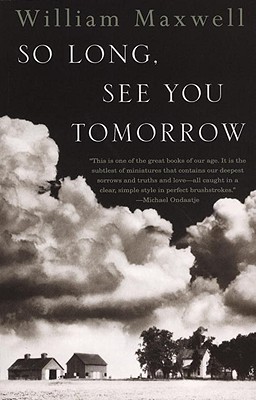APS TOGETHER
Day 8
Chapter 9
October 22, 2020 by Aimee Bender
What state are you in after Chapter 8? Chapter 9 knows we are carrying a lot, so first a pause, a lighter tone as we walk the streets with an older narrator, recalling “the Halloween party,” “the rooms so bright, so charming and full of character.”
I’ve always bristled when writing teachers talk about the importance of what a character wants. (Others feel this?) Sure, it can be very important. Lloyd wanted Fern, and all she meant to him…
But this book seems more about the things that happen to us—to children, to animals, to families-- and how that shapes who we are. (Other books that fall in this category? Often fairy tales do, though this book is powerfully real.)
Before the famously moving “I can’t bear it,” the release of pent-up grief for decades, we encounter a reveal. During the walks with the father, we newly hear of the presence of the coffin. The view of the room expands. Why show it here?
(One psychoanalytic interp: maybe the narrator can see it in a way he couldn’t before, this coffin he has been carrying invisibly with him his whole life, resulting in present/past collapse, and the tears.)
“It is there that I find Cletus Smith”—what do you make of this line? I find it quite moving but also slippery, hard-to-pinpoint. What is it about the time with Cletus that lives in the territory of things done/undone?
From writer Antonya Nelson: “I don't know how William Maxwell manages to balance those two stories, one plotted like a melodrama, replete with murder and mayhem, and the other a quiet meditation that hinges on the tiniest non-gesture of passing strangers many years in the past. It's a combination that oughtn't work. And yet it does.”
The end, looking through yearbooks, searching for Cletus’ face. The narrator feeling such guilt that maybe he drove Cletus out of town. And yet it seems there are two regrets—a more practical one, that he could’ve reassured Cletus that he wouldn’t talk...
and what he spoke of earlier, end of Chapter 4, a deep, basic humanity—“if I had turned and walked along beside him…” (51). The book itself becomes an act of walking beside him….
…fully imagining, as an adult, what this other child, his silent climbing companion, might have been carrying. Hoping for his future. “Unspoken words are at the center of this book,” writes Baxter. What words can do to show this.
Thank you for reading this incredible novel with me, for your thoughts, feelings, links, layers. Every time I read the book, it deepens for me, this time most of all.
